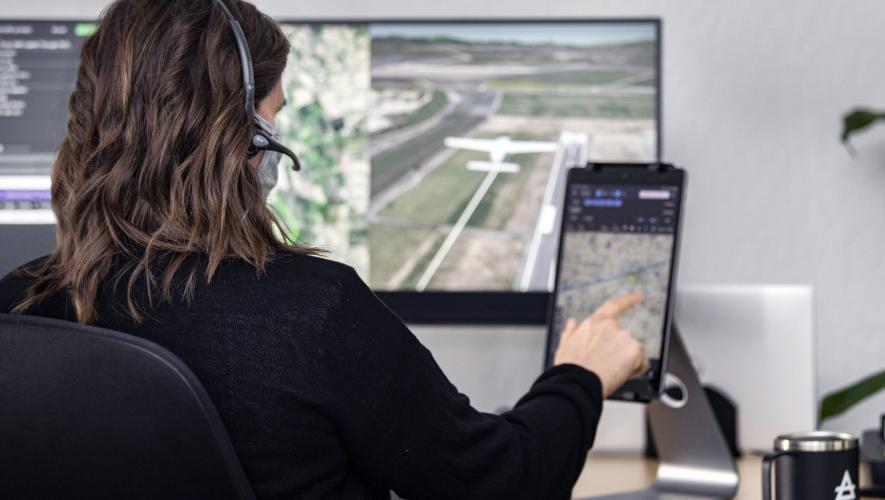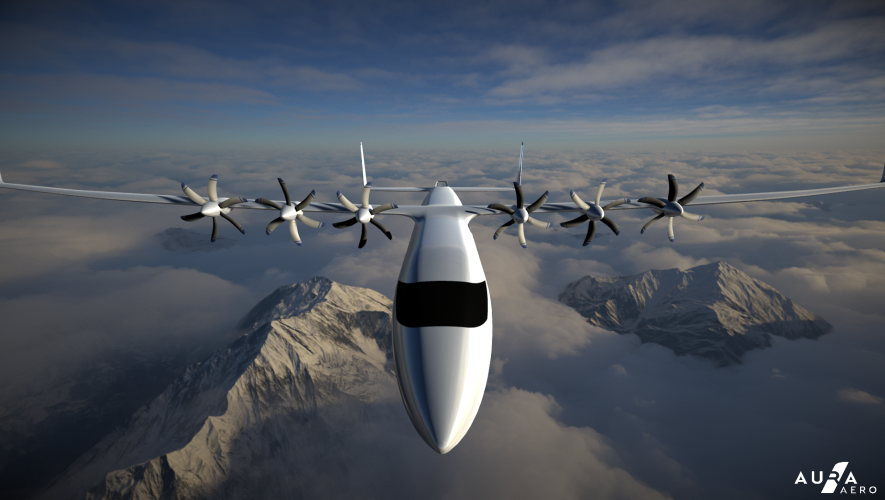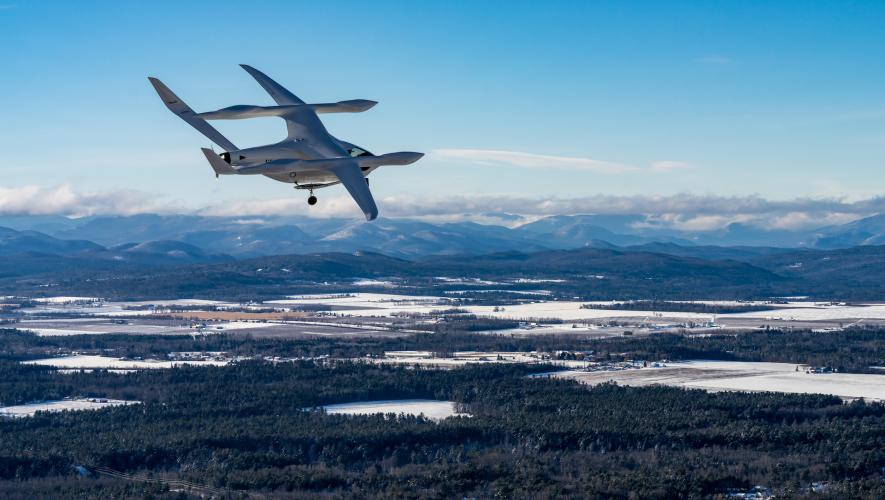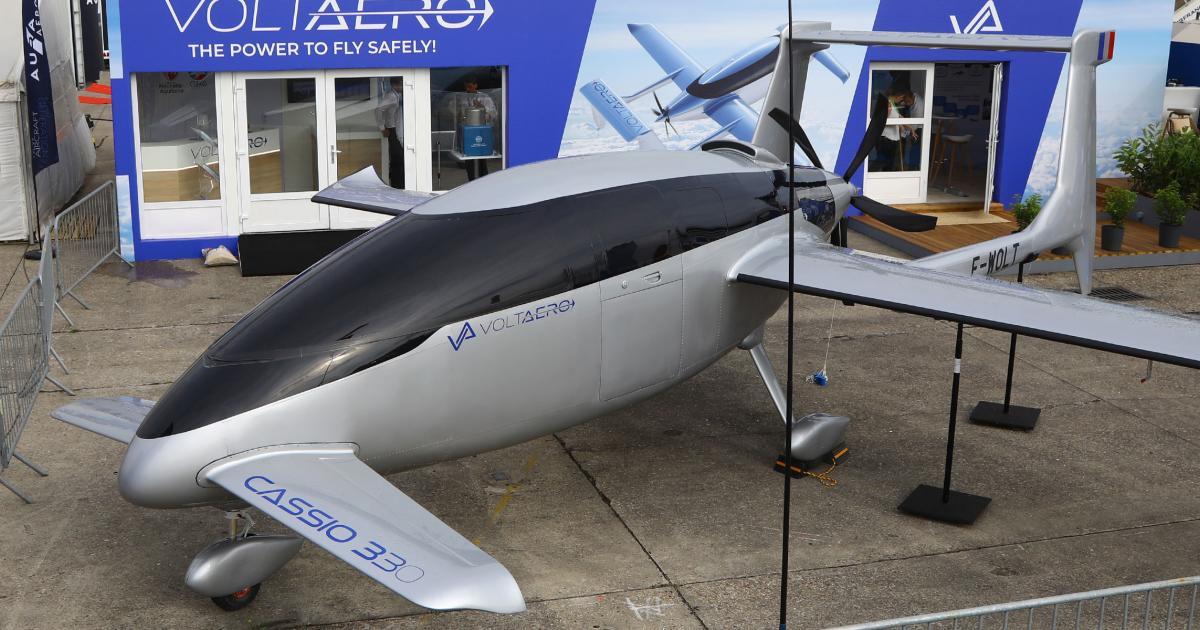Latest FutureFlight Videos
All Videos
FUTURE FLIGHT
Sign up for our free newsletter
News and analysis covering cutting-edge aviation technology and business models, including zero-carbon propulsion, eVTOL aircraft, automation and autonomy, and new infrastructure.
FutureFlight News
FutureFlight
Hydrogen Commercial Flights Could Start Between UK and Netherlands in 2024
ZeroAvia is working with Rotterdam The Hague Airport and the Royal Schiphol Group to prepare for hydrogen-powered flights to London in 19-seat aircraft.

FutureFlight On The Radar
Updated Advanced Air Mobility Reality Index Reflects New Funding for eVTOL Programs
Lilium, Archer, and Airbus all improved their standing in SMG Consulting's latest monthly rating of the viability of new aircraft developments.
FutureFlight
Ferrovial Launches Plan for UK Vertiport Network with Vertical Aerospace
The partnership with Ferrovial was announced after the eVTOL aircraft developer raised a further $205 million from new backers.

FutureFlight
NASA Invests in Further R&D For More Efficient Airliner Engines
GE Aviation and Pratt & Whitney will both work on new engine cores for single-aisle airliners under NASA’s Hybrid Thermally Efficient Core project.

FutureFlight
Italian Officials Back Plan To Bring Urban Air Mobility to Rome
Volocopter is partnering with infrastructure group Atlantia and Aeroporti di Roma to prepare to launch an eVTOL air taxi network in the Italian capital by 2024.

FutureFlight
Autonomous Aircraft Could Expand the Aviation Ecosystem
Reliable Robotics is making steady progress toward certification of its autonomous technology for the Cessna Caravan single-engine turboprop.

FutureFlight
Skyryse Wins New Funding For FlightOS Automation Technology
Fresh backers have provided an additional $200 million to support work on technology that Skyryse says will improve general aviation safety by reducing pilot workload.

FutureFlight
Mitsubishi and Alaska Air Back ZeroAvia's Plans for Hydrogen Airliners
The Japanese group's maintenance, repair, and overhaul arm will install conversion kits based on ZeroAvia's hydrogen fuel cell powertrain, which will also be used for Alaska Air's Dash 8 fleet of twin-turboprops.

FutureFlight
European Airport Companies Launch UAM Infrastructure Project
Called Urban Blue, a new company engaged in a project to develop vertiports in cities such as Rome, Venice, and Nice expects operations to start in 2024.

FutureFlight
Eve Starts eVTOL 'Simulation' with Helisul Helicopter Charter Flights
Trial flights in November will connect the wealthy Rio de Janeiro suburb of Barra da Tijuca with the Brazilian city's main international airport.

FutureFlight On The Radar
Toronto Stakes Its Claim to an Advanced Air Mobility Future
The Canadian Advanced Air Mobility Consortium's white paper on the benefits of the new mode of transportation for the Greater Toronto area has been welcomed by regional investment agency Toronto Global.
FutureFlight
Helipass Calls For Open Market Opportunity to Stimulate eVTOL Aircraft Growth
The flight booking platform is working to encourage helicopter charter operators to switch to new eVTOL aircraft, such as the four-passenger model being developed by Eve Urban Air Mobility Solutions.

FutureFlight
London Heathrow Airport Makes Plans For eVTOL Aircraft Operations
The UK airport has been working with eVTOL aircraft developer Vertical Aerospace to consider what preparations are needed to integrate the new electric vehicles with existing airline operations.

FutureFlight
How CityAirbus NextGen Could Be Just the First Movement in an Advanced Air Mobility Symphony
The European aerospace group says its approach to the advanced air mobility sector will resemble its path to a strong presence in the mainstream air transport market, which is characterized by product families and global customer support.

FutureFlight
5G Connectivity Advances Set To Expand the Horizons for Autonomous Flight
While enhancing its software platform to support drone operations using low-altitude authorization and notification capability, Skyward is also looking to deliver enhanced autonomous flight capability by tapping 5G cellular networks.

FutureFlight
Japan Airlines Could Take Up to 100 eVTOL Aircraft as Air Taxi Plans for 2025 Osaka Kansai Expo Advance
The Japanese carrier is taking a leading role in plans to launch urban air mobility services, with agreements and partnerships in place with Vertical Aerospace and Volocopter.

FutureFlight
Amedeo Commits to Adding 200 Electric Regional Aircraft to Its Lease Portfolio
French start-up Aura Aero is working to bring its 19-seat hybrid-electric aircraft into commercial service by 2026 and is also developing an all-electric training aircraft called the Integral E.

FutureFlight On The Radar
Vertical Aerospace and Partners Demand Strong UK Government Action To Support Electric Aviation
A new white paper published by the eVTOL aircraft developer and multiple partners says the UK government needs to do more to stimulate the launch of electric flights between British cities by 2025.
FutureFlight
UP.Partners Closes $230 Million Future Mobility Fund
UP.Partners has closed its venture capital fund with $230 million raised to invest in start-ups in various areas of mobility, including aerial, maritime, and ground vehicles and technologies.

FutureFlight
Air One eVTOL Lures Owner-Flown Customers with 'Fly by Intent" Simplicity
The Air One's developer is channeling cost- and weight-saving techniques from the automotive world in a bid to transform the economics of private aviation and expand the market for eVTOL personal transportation.










